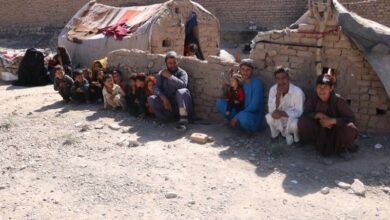Russia extends military exercises with Belarus over tensions in Donbas

Moscow, Feb 20 (EFE).- Belarus said that it Moscow and Minsk have decided to prolong the Russian military presence in Belarus past the joint maneuvers by the two countries’ armed forces, exercises that were scheduled to end Sunday but which Moscow has said it was extending due to increasing tensions in the breakaway Donbas region in eastern Ukraine.
Belarusian Defense Minister Victor Jrenin made the announcement on Sunday that Minsk and Moscow would extend the military exercises amid what he called growing threats along their common border with Ukraine.
Jrenin said that the measure was specifically in response to the “increase in military activity near the borders of (Russia and Belarus) and the aggravation of the situation in the Donbas,” the eastern area of Ukraine where Russian-backed militias have broken away from Kiev’s control.
The minister added that starting now Russian and Belarusian troops will continue testing defense procedures that were not covered “in a detailed way” during the Allied Resolve 2022 maneuvers that had been under way since Feb. 10.
The focus of the extended activities, he said, will remain unchanged and will seek to guarantee an adequate response to the “escalation” in tensions along the borders of Belarus and Russia with Ukraine.
Russia currently has some 150,000 troops amassed along its border with Ukraine and perhaps another 30,000 troops in Belarus, all of which appear to be preparing to, and poised to, invade Ukraine, “in the coming days,” as US and Western governments and intelligence sources have said.
Jrenin added that the neighboring countries of Russia and Belarus are full of modern weaponry, a clear allusion to the fact that Western nations, including the US, have been shipping military equipment to Ukraine in recent months to help Kiev defend itself against what has looked like a Kremlin plan to invade that country.
“It’s obvious that (this military equipment) is directed against Russia and Belarus,” Jrenin said.
The Belarusian official accused the West of failing to respect Russia’s “red lines,” as expressed in its recent security demands, and he confirmed that these concerns, including a demand that NATO cease expanding to the east, also are shared by Minsk.
Jrenin said that all this leads to the conclusion that “there is the scent of gunpowder in Europe,” and that the West is “pushing for war.”
Belarusian President Alexandr Lukashenko, who on Thursday visited a site where the joint military exercises were being held, said that he would decide at a Moscow meeting on Friday with Russian counterpart Vladimir Putin on the future of the military activities.
Lukashenko added that the US is sending its troops thousands of kilometers to various Eastern European nations – although not to Ukraine, which is not a member of NATO – and thus he does not understand the West’s criticism of the presence of Russian troops on Belarusian territory.
“If we make the decision (to withdraw Russian troops), we’ll do it in a day. If we’re talking about a month, they’ll be here a month. The (Russian) troops will be here for the time needed. It’s our land and our territory,” he said.
Putin, meanwhile, said last week that the Russian-Belarus military maneuvers were defensive in nature and were not a threat to anyone.
Those words did not convince the Belarusian opposition, who on Sunday called for the immediate withdrawal of Russian military forces from Belarusian territory.
Belarusian opposition leader Svetlana Tikhanovskaya’s team said that “We have sent letters to the countries of the European Union with proposals for new strong sanctions that hit the regime and not the people,” and they are also proposing holding consultations with Belarus’s neighbors, the EU, the US and the United Kingdom, regarding the situation.
Meanwhile, US Secretary of State Antony Blinken said Sunday that the events over the weekend suggest that Putin has set a plan in motion for attacking Ukraine, although he added that there is still time for Moscow to choose the route of diplomacy to address its alleged security concerns.
Even so, it appears that little or no progress has been made in bilateral or multilateral talks to address Russia’s concerns, given that they include demands to which the US, Western European countries, the EU and NATO will not agree.
Blinken told CNN that “Everything we’re seeing suggests that this is dead serious, that we are on the brink of an invasion.”
He said that he is more concerned about the possibility of an invasion of Ukraine now that Russia and Belarus have decided to extend their military maneuvers beyond Sunday, when they were scheduled to conclude.





